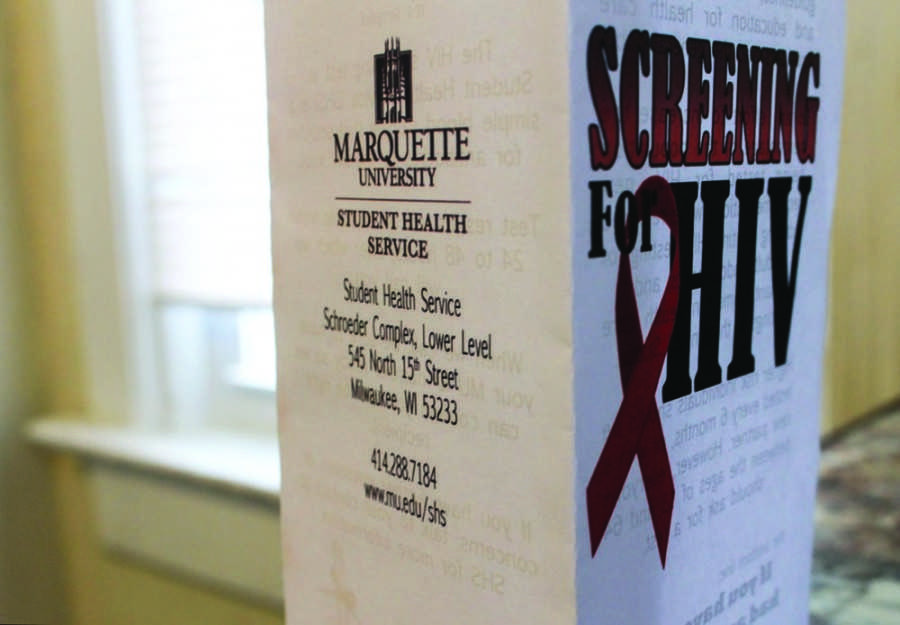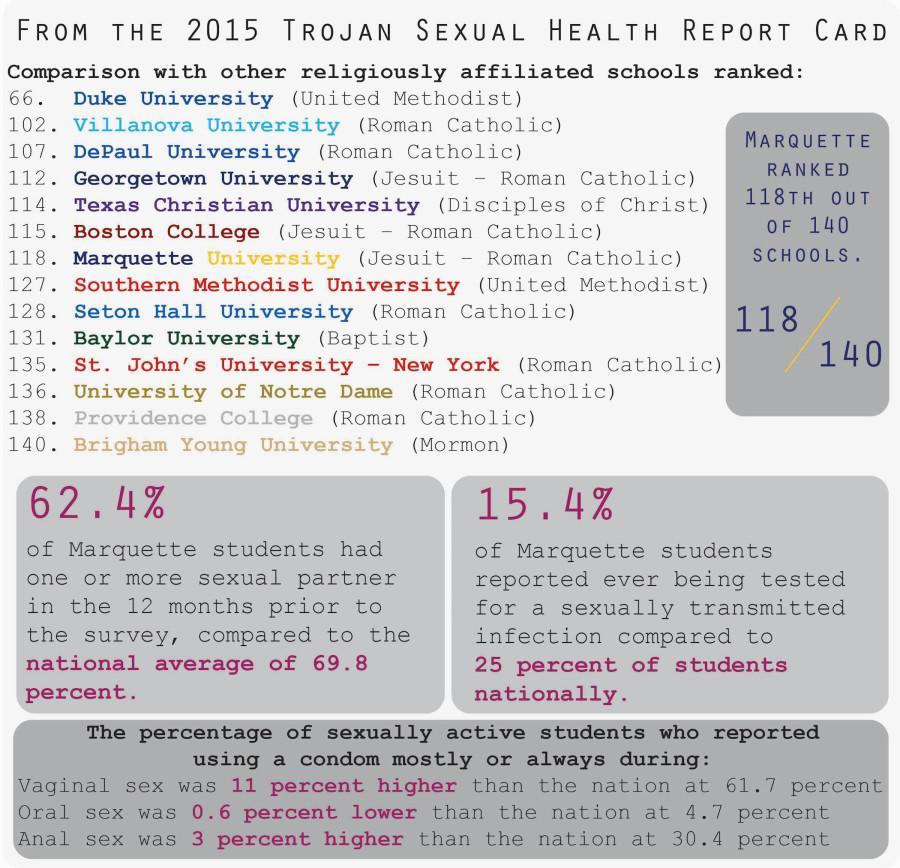Thursday’s staff editorial called upon the university to “put more focus on sexual awareness programs and sexual education.” The authors want Marquette students to have unimpeded access to pamphlets about sexual health in addition to “courses or campus seminars specializing in sex education.”
I respectfully disagree.
A recent low-scoring “report card” in sexual health policies and programs at Marquette prompted the editorial board to sign on to the report’s underlying sex agenda. However, at no point did the board address the legitimacy and possible conflicted interest of the report’s sponsor and primary promoter, Trojan brand condoms, the country’s leading manufacturer of latex contraceptives.
What is more unnerving than the report’s potential bias is its arrogance and disrespect for its topic. How could anyone presume to know what is good sexual health policy for all of America’s college campuses?
Sex is a complex, sensitive subject. Reasonable people of goodwill disagree about its timing and meaning.
 Some see it as a fun, recreational hobby that merely requires consent (and a condom). For others, its occurrence and significance touch on something divine and demand caution, respect and wisdom. After all, there’s no protection — even in latex — for how sex can sometimes damage the psyche.
Some see it as a fun, recreational hobby that merely requires consent (and a condom). For others, its occurrence and significance touch on something divine and demand caution, respect and wisdom. After all, there’s no protection — even in latex — for how sex can sometimes damage the psyche.
Marquette’s Catholic, Jesuit character takes the cautious approach. It’s true: We don’t talk a lot about sex here. Apart from sex as an academic subject, you’ll hear about sex in euphemisms like “intimacy,” and mostly in the context of marriage.
A sexual atmosphere is even harder to come by at Marquette. We segregate dormitory living spaces based on gender, and we enforce this anachronistic thing called “visitation,” to the annoyance of most heterosexual couples on campus.
You know why this is. Religion — be it Christianity, Islam, or Judaism — has contemplated sex for a long time, even longer than Trojan’s sexual propaganda. And while Marquette is open to people of all faiths (or of no faith), it chooses to respect sex as the ultimate procreative union of a man and a woman in marriage.
To advocate anything more permissive would contradict the university’s identity. Let’s be fair to Marquette’s position as we are fair to Trojan. Would you really expect Trojan to offer abstinence seminars and chastity belts?
But Marquette’s approach acknowledges that young people will still experiment with sex as they please. The university in no way indoctrinates one particular sexual ethic over another in the classroom or anywhere else. We’re largely a quiet, sex-neutral school.
However, if you do want a meaningful conversation about procreation and the meaning of sex beyond just an orgasm, then clergy and ministerial staff are standing by. Otherwise, you must outsource your sex needs somewhere else.
Let’s be realistic: Learning about sex without Marquette is not that difficult. Go to any genuine resource, like GoAskAlice.com, and you’ll find a wealth of information about STDs, sexual positions and everything a celibate priest can’t tell you.
Those concerned about pregnancy and infections can turn to one of many nearby clinics and resource centers in Milwaukee. These places are better equipped to address the needs of curious or sexually active students who may need assistance in affording contraceptives or testing for sexually transmitted diseases. Planned Parenthood, for example, is just a short walk west of campus on Wisconsin Avenue.
Of course, our own Student Health Services provides testing, it’s just pricey.
Marquette’s primary aim is to educate and produce men and women who serve others. Once upon a time, that’s all a good Jesuit school needed to do. In a tight economy, expecting more than this is probably unreasonable. The sexually inquisitive can find affordable, established guidance elsewhere.
Don’t be afraid if Marquette fails the Trojan sex agenda. It’s a sign of respect that what happens in bed is your private (and perhaps sacred) matter, and that Marquette is more focused on your education than your sex life.








The Surgeon General • Oct 21, 2010 at 12:46 pm
Any worthwhile institution of higher learning – especially one with a College of Health Sciences – would seem remiss were it to avoid tackling Public Health issues publicly, and those issues most certainly include sexual health. ‘The deed’ might typically and perhaps ideally be performed in private, but the records show anything to do with Public Health is best addressed publicly to minimize the many casualties of ignorance, misinformation, and disinformation…
A responsible and dignified discourse easily accommodates any doctrinal sensibilities…